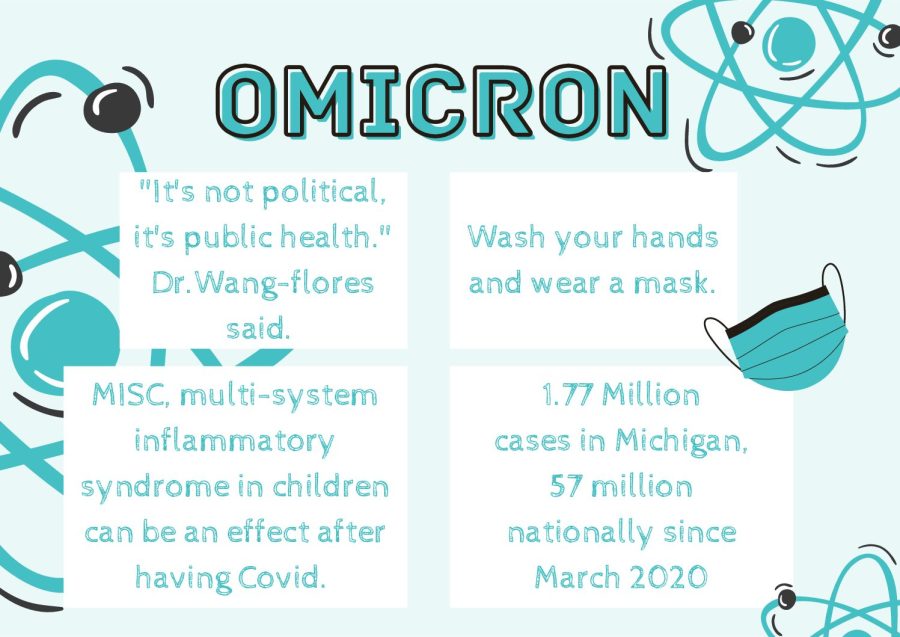Omicron: What to know
January 11, 2022
Over two years after the first case of COVID-19 was discovered in Michigan, cases have not slowed down. The recent spike in cases can be attributed to the Omicron variant. The new variant of COVID-19 is fast-spreading, can cause less severe symptoms and is vaccine resistant.
Due to differences in who is eligible for the vaccination, younger age groups are testing more than adults who are protected from the virus. Dr. Wang-Flores is a doctor in the pediatric section of the University of Michigan hospital’s emergency room.
“We are seeing more kids with COVID than we ever have,” Wang-Flores said. “Yesterday just about every single patient of mine from babies to teenagers was testing positive.”
Although long-term effects of the virus are still largely unknown, children are more at risk for Myocarditis, an inflation of the heart muscle, and Multisystem Inflammatory Syndrome in Children (MISC). If someone who is vaccinated tests positive for COVID, their symptoms are more likely to be less severe according to Wang-Flores.
“We do know that if you are vaccinated and boosted, individuals who do get it (COVID) have much more mild symptoms,” Wang-Flores said. “Our unvaccinated patients coming in are still quite sick.”
As new variants and information continue to come out, Wang-Flores said the protectiveness of the vaccine is being questioned.
“There is no confirming data that show the vaccine is not protective against Omicron,” Dr.Wang-Flores said. “Until we know that, the healthcare community will still strongly recommend that people get vaccinated and get their boosters.”
As case numbers increase, so do the number of people in the emergency room according to Wang-Flores. This is leading to longer wait times and potentially more exposure. Many primary care offices are still unable or unwilling to treat COVID patients.
“Not only do we have the extra volume from patients who have COVID, but also the extra volume from patients who are overflowing from their primary care doctor offices,” Wang-Flores said. “Staff shortages are increasing and lots of COVID cases have made the ED (emergency department) volumes and situation unsafe.”
COVID-19 is often compared to the Spanish Flu pandemic, which ended when a highly contagious and transmissible variant spread until almost everyone had the antibodies for the virus. Many people hope Omicron, like the highly contagious variant of the Spanish Flu, could signify a near end to the pandemic. Wang-Fores noted there is not a clear answer if this is true or not.
“The big question is: Is Omicron a signal to the end of the pandemic?” Wang-Flores said.















































































